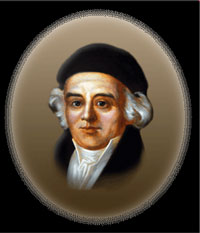|
Introduction to Homeopathy
In this introduction to homeopathy you will realize that there is a good deal more to this time honored practice than may meet the eye. When you are exposed to homeopathy the right way from the very beginning, you'll understand how to work towards the healing you seek in yourself and others. Homeopathy is an inexpensive yet effective approach to health and healing. Its very core of practice embraces holism. It is a true healing art. A homeopath looks at the physical, mental, emotional and spiritual aspects of health. He will be asking questions such as, “What was happening in your life when you first started these symptoms?”
Homeopathy has its own complete medical system of theory and practice that developed outside of current conventional medicine. This means that you cannot compare conventional medicine and homeopathic medicine. It works very differently. This leaves many conventional medicine practitioners scratching their heads over how it works or even how their patient was cured. Be aware that most conventional physicians have no understanding of homeopathy. They did not train in this healing art. There are several reasons only a few physicians will incorporate homeopathic remedies in their practice. The legal ramifications a physician may face if he ventures outside the "Standard of Care" may be one of these reasons. This is so, even though The Food and Drug Administration regulates the manufacture of homeopathic remedies under provisions of the Food, Drug, and Cosmetic Act. Though this regulation may ease some peoples minds, it also causes a problem. The FDA is comprised of physicians that have no understanding of the healing efficacy of this time honored art. Though there has been numerous studies showing its efficacy, the myth persists that it is an “unproven system”. There are also inherent problems with studying homeopathy using the same methodology as conventional medicine. This is because it works so differently! Homeopathic medicine will not interfere with any current medicines or therapies you may currently be using. There is a possibly you may be able to decrease your dosage of your medicine, with your physicians approval.
In order to understand this introduction to homeopathy, you should be aware of its history. Dr. Samuel Hahnemann, M.D. is the founder of this medical system. He was a physician that gave up medical practice in 1789. He did not agree with the treatments, such as bloodletting, purging, and using mercury for treating syphilis, that were in vogue at the time he practiced. He was a linguist, so he turned to translating medical texts. This made him very well read as he translated research done from around the world. During this period, he still had a goal to discover “if God had not indeed given some law, whereby the diseases of mankind could not be cured." In the course of translating one particular text from English to German, he described why a particular bark (Cinchona Bark)worked in the treatment of malaria.
He decided to take some of the bark himself. Shortly afterward, he came down with the symptoms of malaria. This started a series of events that led to the theory that “Things that cause” symptoms in someone that is healthy will cure those same symptoms in an ill person that is exhibiting those same symptoms. This is the basic principle of homeopathy known as "Similia Similibus" or“like cures like”.
There was a time, in the not so distant past, when those who believed they could be healed without the benefit of traditional medicine were looked down upon and ridiculed by the scientific community at large. We've come a long way since then. Today we are more accepting of the fact that there are alternative methods of healing, and that some of those may be more effective. This presents a much more favorable atmosphere for learning than in recent years. It is possible to remedy a wide range of illnesses and conditions without the assistance of chemical cures. It works to improve the health of the entire body, mind, and spirit. Some conditions that are greatly improved through homeopathic healing include: sinus infections, vertigo, cold and flu, pain management, and even reducing fever. The FDA only allows you to say that Homeopathy can be used to treat self-limiting conditions. In fact, I have seen homeopathy cure the common cold, headaches, fevers, back pain nausea and vomiting in a matter of minutes. To continue your introduction to homeopathy and natural medicine areas, choose from among the texts listed in the little slide show below. These are books that should be within easy reach in every household. Return to Home Page from "Introduction to Homeopathy" Disclaimer */This information in an "Introduction to Homeopathy" is provided for educational purposes only. There is no intention to diagnose or treat health conditions. All the information contained in this web site is related to natural approaches to health and is outside the typical Standard of Care provided by your physician. If you are under a physician's care it is important you keep him informed about what you are doing. There are physicians that recognize the value of natural approaches to healing. /*
|





 Hahnemann thought this treatment was preposterous, and could not possibly be true.
Hahnemann thought this treatment was preposterous, and could not possibly be true.